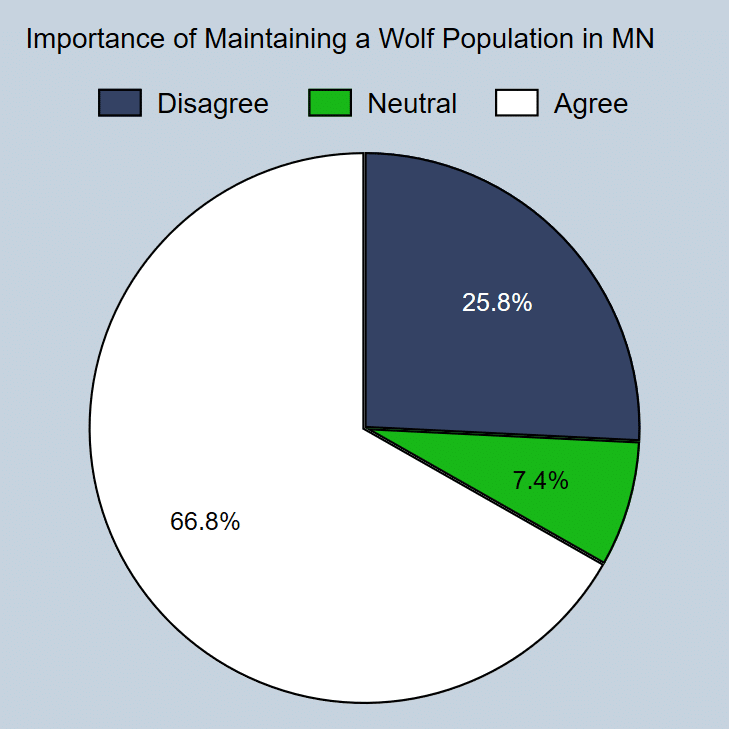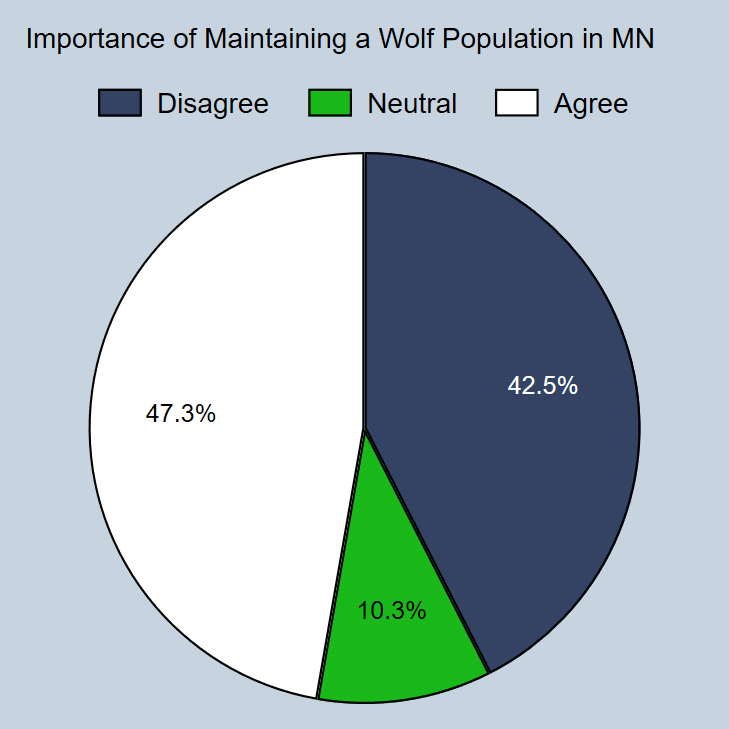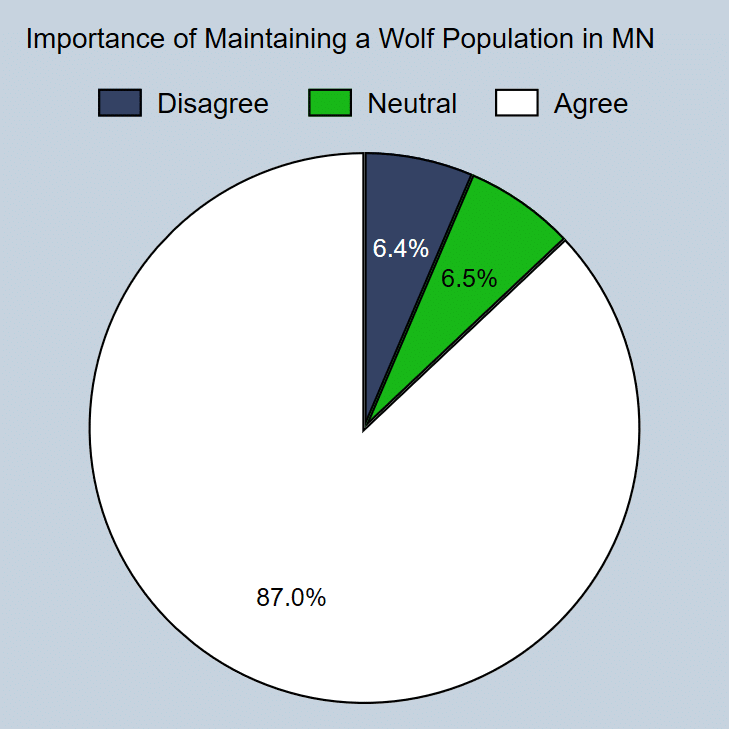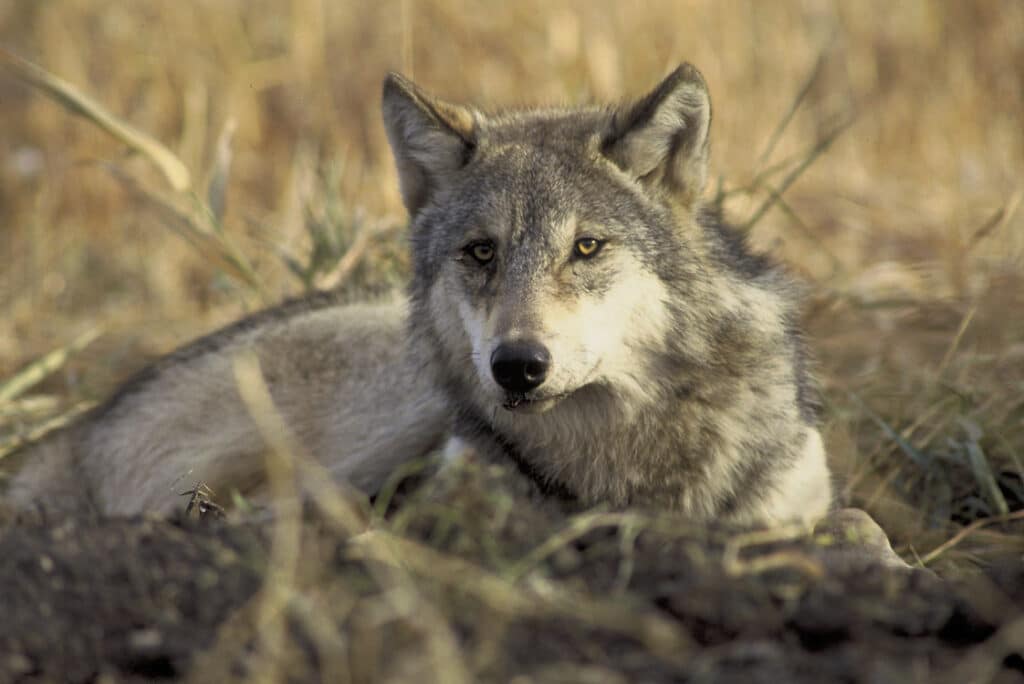
Most people in Minnesota like wolves and want the state to maintain the current population. That’s a key point from survey results recently released by the state’s Department of Natural Resources in partnership with the University of Minnesota.
The numbers are of course more nuanced. Besides the general public, the survey also focused on two key groups seen as important stakeholders in wolf management: livestock producers, who are often affected by wolf predation on cattle and other farm animals; and hunters, who see how wolves can affect the likelihood of harvesting a deer each fall.
While wolves lived across much of the country before European immigration, they were mostly wiped out by hunting and habitat loss. Minnesota is the only state east of the Rockies where wolves were never fully exterminated. A population held on in what became the Boundary Waters Canoe Area Wilderness until they were given some protection in the 1970s.
Nearly 500,000 people hunted whitetail deer in Minnesota in 2019. There are about 20,000 cattle farms in the state, making up 13 percent of Minnesota’s agriculture economy. To study public opinion, surveys were mailed to thousands of random recipients from the three groups, and the DNR received responses from 1,466 residents, 895 hunters, and 1,139 livestock producers.
“The collection of statistically representative data of stakeholder preferences can enhance the transparency of decision making and provide a voice for all stakeholders affected by wolf management,” the report says.
Deer hunters Livestock producers Residents
Nearly 9 out of 10 residents of the state said it was important to maintain a wolf population. The biggest reason was “because they are an important part of the ecosystem.” For the most part, residents would like the wolf population and its current range to remain about the same.
On the other hand, two-thirds of deer hunters believe wolves should stay, while less than half of livestock producers feel a wolf population is important.
Ranchers feel far less positively about wolves than the general public, while deer hunters fall in the middle. Yet more members of each group agreed than disagreed that it’s important to make sure wolves continue to live in the state.
The information will help guide the DNR’s effort to create a new wolf management plan, with the previous plan adopted in 2001. The agency is conducting numerous activities to gather public input. A 20-person committee was recently named to advise the agency, with representatives from wildlife organizations, hunting, livestock farming, and other stakeholders.
“The group’s purpose is to provide input to DNR in updating Minnesota’s wolf management plan by developing recommended wolf management options and preferences, with particular emphasis on controversial aspects of wolf management,” the agency says.
Wolves are currently protected by the Endangered Species Act, after being briefly removed from the list in 2012. Two years of wolf hunting seasons were allowed while the animals were not designated endangered, and the topic of hunting and trapping remains a key issue.
Livestock producers overwhelmingly support wolf hunting and trapping, with more than 8 out of 10 saying supporting it. Nearly the same number of deer hunters support wolf hunting and trapping.
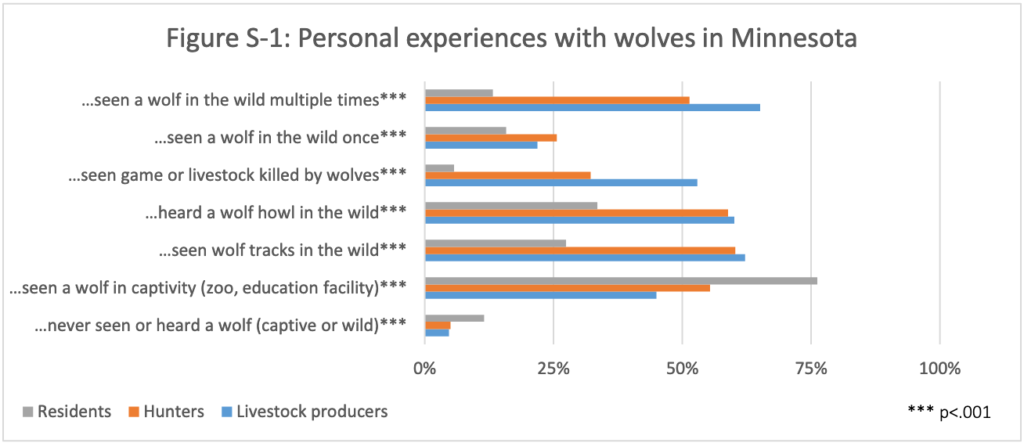
The study also found that wolves are an important part of many respondents’ lives. More than a quarter of all residents have heard a wolf howl in the wild. Livestock producers and deer hunters were more likely than the general population to have observed wild wolves.
Much of the differences between the beliefs and feelings of the stakeholder groups was most starkly obvious in questions about how the state should manage its wolf population.
All respondents agreed on the need for research and education, compensating livestock producers for animals lost to wolves, and killing wolves that threaten people or attack livestock.
Residents felt that promoting diverse animal communities and public opportunities to see and hear wolves, along with protecting individual wolves were important, while hunters and livestock producers did not. Alternatively, residents did not think it was important to reduce wolf population to protect deer or hunting dogs.


